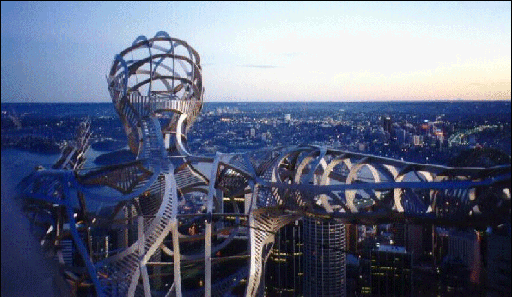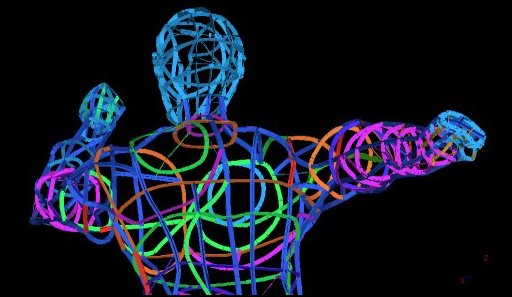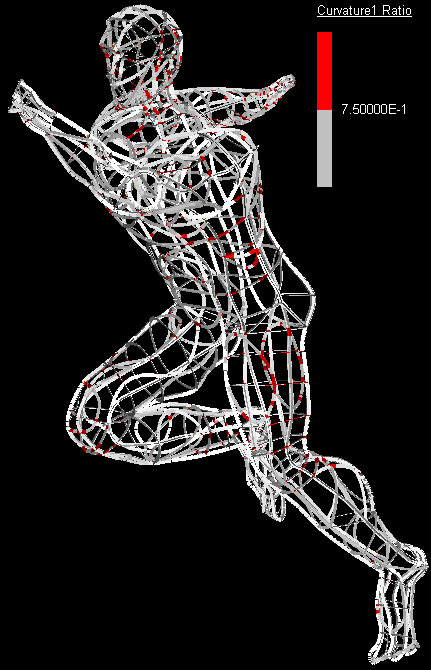Analysis of AMP olympic sculptures
|
What are the Olympic sculptures?
|
|
AMP, sponsors of the 2000 Olympic Games, commissioned the design,
construction and installation of three Olympic sculptures for the turret of AMP
Tower. The three sculptures represent athletes, gymnasts and paralympians, and
were designed by the sculptor Dominique Sutton. Structural engineers for the
project were Hyder Consulting.
|

|

|
Construction
|
|
The three sculptures were fabricated from flat plate mild steel and
standard beam sections. The largest figure, The Sprinter, is 15 metres
high and weighs over four and a half tonnes. The hoops which form the
definition of the figures were plasma-cut from single sheets of plating, to
increase the overall strength of the structure.
|

|
Loads
|
|
The dominant loading on the sculptures is wind loading. Each sculpture was
designed to withstand a fifty-year wind. Dedicated wind tunnel tests were
carried out at the University of Sydney using scaled models.
|
Linear analysis
|
|
Strand7 was used to analyse The Sprinter. Using linear static
analysis, member loads were accurately determined. This data formed a basis for
the preliminary sizing of structural members.
|
Non-linear analysis
|
|
The non-linear static solver was used to simulate the progressive
development of plastic hinges as The Sprinter sculpture was loaded above
its design load. This type of analysis gives information about the
structure's ultimate load-carrying capacity.
|

|
Installation
|
|
Each figure was airlifted by helicopter onto the turret of AMP Tower
--- making weight a key design factor. The analysis provided a loading envelope
for each member section. This allowed the designers to optimise members,
reducing the overall mass of each structure.
|

|






 Menu
Menu